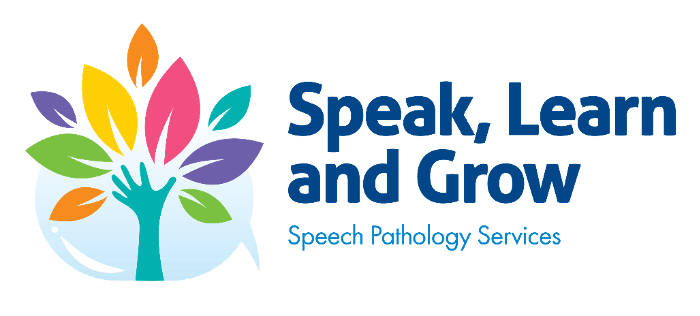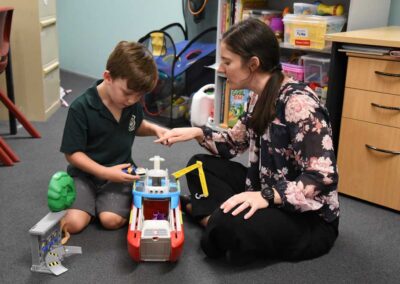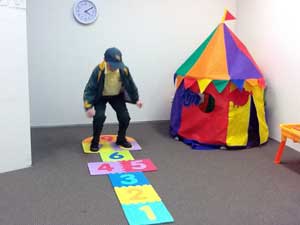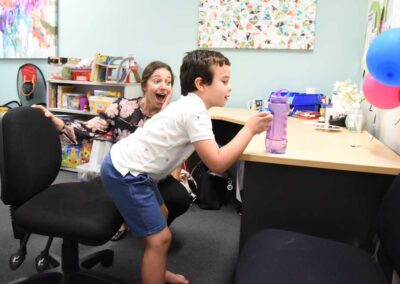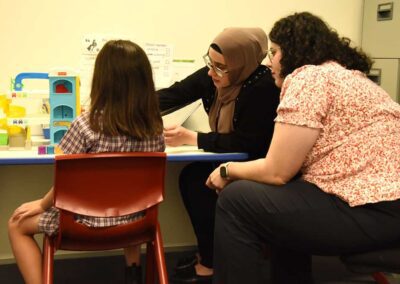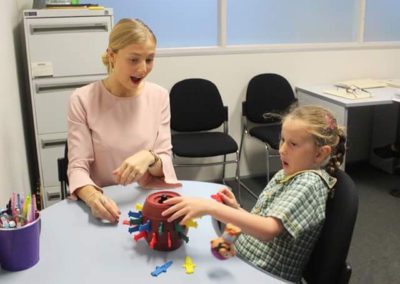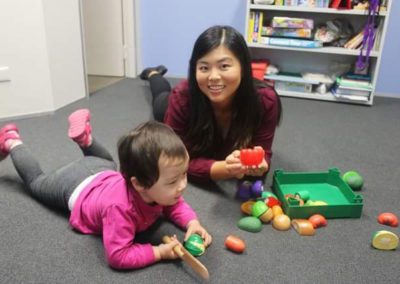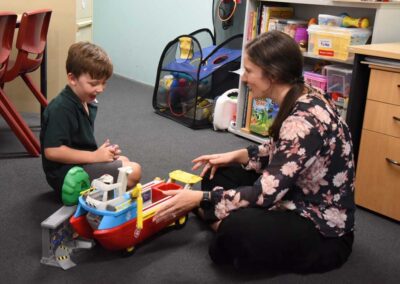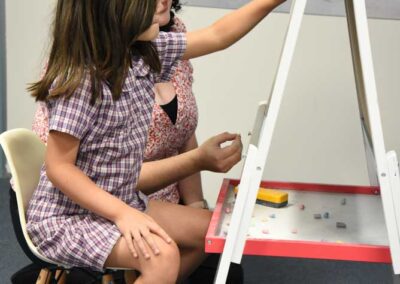Concerned with your child’s speech sound production?

What is Speech?
Speech is how we say sounds and words.
Most children develop speech sounds within specific age milestones.
Children who do not say their sounds clearly by expected ages may have a speech sound disorder.
Types of Speech Sound Disorders?
Functional (No Known Cause)
- Articulation: motor aspects
- the speech sound error including distortions or substitutions in production of individual speech sounds.
- Phonology: linguistic aspects
- the predictable, rule-based errors that affect more than one sound (e.g. final consonant deletion, saying “pig” as “pi”)
Organic (Developmental or Acquired)
Motor/Neurological
- Planning: childhood apraxia of speech
- the brain has trouble sending messages to the speech muscles telling them how and when to move.
- Execution: dysarthria
- the muscles needed to make speech sounds are weak.
Structural abnormalities
- cleft palate/other orofacial anomalies
- structural deficits due to trauma or surgery
Sensory/Perceptual
- hearing impairment
Signs and Symptoms of Speech Sound Disorders
- omissions/deletions (e.g. “cup” as “cu”)
- substitutions (e.g. “thing” as “sing”)
- additions: one or more extra sounds are added or inserted into a word (e.g. “black”
as “buhlack”) - distortions: sounds are altered or changes (e.g. lisp)
- syllable-level errors: weak syllables are deleted (e.g. banana as nana)
Causes of Speech Sound Disorders
The causes of articulation and phonological speech sound disorders (i.e. functional disorders) is not known, however there are some known risk factors including:
- gender: more likely to occur in males than females
- pre- and perinatal problems: maternal stress or infections during pregnancy,
complications during delivery, preterm delivery and low birthweight - family history: children who have family members (parents or siblings) with speech and/or language difficulties were more likely to have a speech disorder
- persistent otitis media effusion: often associated with hearing loss or impairment
It is important to have your child’s hearing checked to make sure they do not have a hearing impairment. A child with a hearing impairment may have trouble learning to speak.
What is our Role?
As speech pathologists we play a key role in the screening, comprehensive assessment, diagnosis and treatment of speech sound disorders.
Treatment
Speech pathologists will choose the best approach for therapy based on your child’s age and speech language development. Common speech therapy approaches include:
- Articulation approaches: target each sound error and are often selected by the clinician when the child’s errors are assumed to be motor based, the aim is correct production of the target sound(s).
- Phonological approaches: target a group of sounds with similar error patterns (e.g. cluster reduction – “spoon” as “poon”)
- Motor Planning approaches: use motor learning principles, including the need for many repetitions of speech movements to help the child acquire skills to make sounds and sequence sounds accurately, consistently, and automatically.
